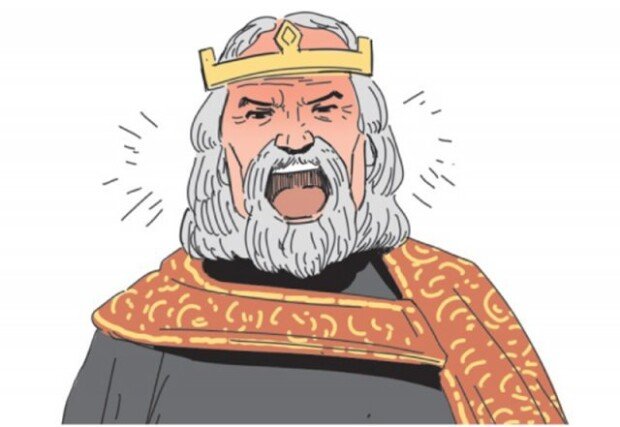Destiny of patriarchs
Destiny of patriarchs
Posted October. 10, 2022 08:01,
Updated October. 10, 2022 08:01


“O, how this mother swells up toward my heart! Hysterica passio,--down, thou climbing sorrow, Thy element's below!”
This well-known line from Act 2 Scene 4 in "King Lear” by William Shakespeare is said by King Lear, left infuriated by his daughters treating him poorly after he gives them chunks of land. The word "hysterica” referred to the womb back then. That is, the state of "hysterica passio” is a symptom you develop when you feel as if the womb sprang up from the bottom, the heart suffocated and the throat got deadly parched. This may have a close association with Hwa-byung (HB) or anger disease symptoms that mothers of the older generations suffered while living with their in-laws patiently.
What makes King Lear suffer anger disease is that he comes to realize that his daughters betray and leave him obsolete. The author may have chosen the word "hysterica,” which means the womb, to express the king's anger at the daughters.
In this light, we can interpret this phrase as a gender-based expression. Once King Lear gives out land to his daughters, he cannot exert his patriarchal power over his family. Given that feudal society prioritizes the masculinity of the king or the absolute monarch, acceptably, this line can be considered to deliver antagonism against daughters.
If we look at this line from a historical perspective, "historica,” not "hysterical,” is seen until the third edition of the original copy. Then, we can think of something “historical,” not the womb nor any other gender-related perception, as the cause of Hwa-byung. From the viewpoint of King Lear, the loss of land may signify the demise of absolute authority in the shift from medieval feudalism to modern society.
Both in terms of gender and history, we can take the hint of what patriarchs are destined for. Even now, a group of leaders just like King Lear, pathetically, seem nostalgic about the good old days that they wish to return to, ill-prepared to march to the future.
Headline News
- Joint investigation headquarters asks Yoon to appear at the investigation office
- KDIC colonel: Cable ties and hoods to control NEC staff were prepared
- Results of real estate development diverged by accessibility to Gangnam
- New budget proposal reflecting Trump’s demand rejected
- Son Heung-min scores winning corner kick







